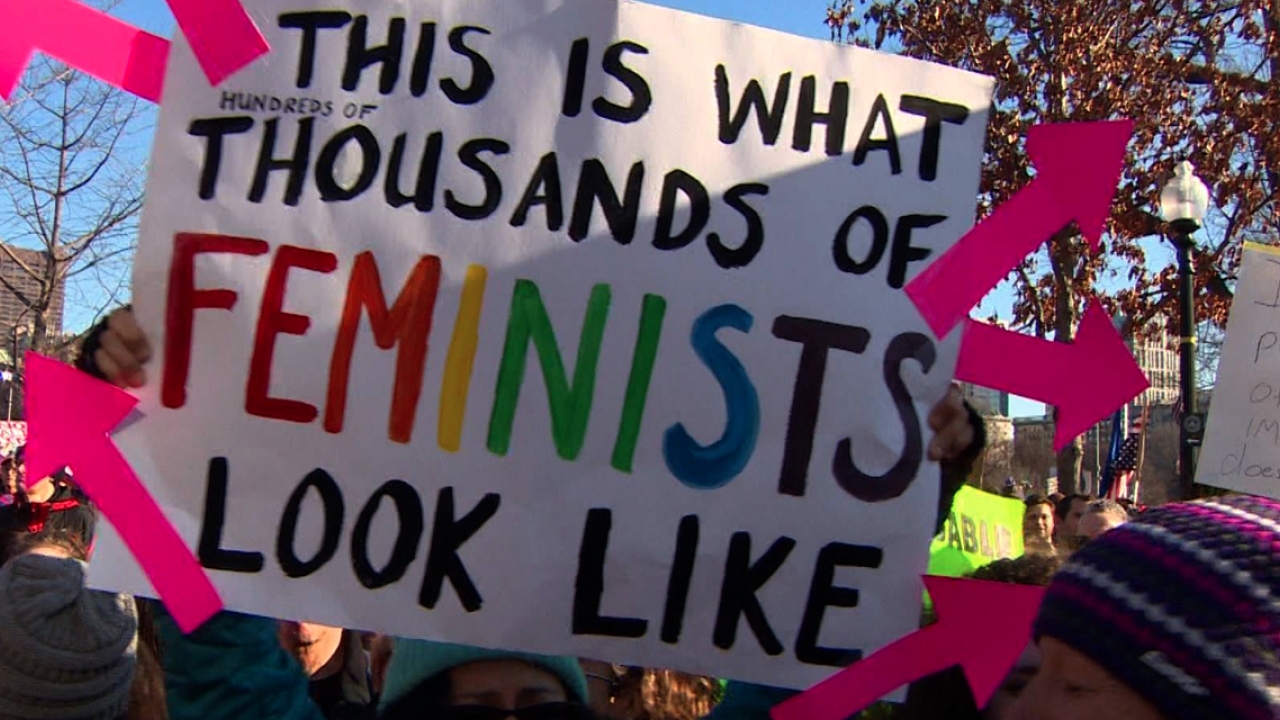Wellesley Faculty Discuss Feminism’s Past, Present, and Future with Media

During Women’s History Month, local, national, and international media asked four faculty members from Wellesley’s Department of Women’s and Gender Studies to share their insights on women’s rights, the definition of feminism, and the popularity of women’s and gender studies, among other issues.
Irene Mata, associate professor, and Shannon Weber, visiting lecturer, joined WGBH Radio’s Under the Radar with Callie Crossley ’73 to discuss the idea of “intersectional feminism,” described by Crossley as a “concept and buzzword…now hitting news stories and social media regularly, especially since the Women’s March.”
“[Intersectionality] acknowledges that fact that we are human beings, and individuals,” Crossley said, and that “our realities are enmeshed.” Intersectional feminism, according to Mata, acknowledges and allows for “multiplicities to come into play, so that when we’re looking at, for example, a case of immigration, we have to think about how immigration affects women differently than it affects men, how it affects women with children differently than it affects men, how it affects racialized women differently than it might affect a white woman.” Mata said understanding the role of class in an intersectional analysis is also crucial, because middle-class feminists experience “privilege and access to resources that working-class people don’t necessarily enjoy.”
One lesson intersectional feminism has to offer, Mata said, is that we must “look through our differences in order to become better at strategizing for change.” Intersectional feminism, she said, is founded in inclusivity. “What we’re talking about is understanding not just our own oppression” but the position and oppression of others, she said. Added Weber, “We can’t only think about our lives in terms of gender, but [we must understand] that everyone has multiple experiences and identities, and thus [we] are granted differential access to power and resources in society.”
Weber gave additional context, explaining “the history of intersectionality as a theory, coming out of critical race studies and critical legal studies.” At its earliest stage, intersectional feminism centered the discourse in terms of real-world applications, including how institutions treat individuals and how people grapple with “the intersecting nature of oppression.” (Weber was also interviewed by the International Business Times for a story explaining the history and theory behind feminism.)
Leigh Gilmore, distinguished visiting professor of women’s and gender studies, was a guest on WCVB’s Chronicle during a segment on what feminism means in 2017. Gilmore defined feminism, discussed “the media campaigns that denigrate and stigmatize feminism,” and talked about the need for the feminist movement to be inclusive. Gilmore said that women face unique challenges in public and political life, and one way to address them is to “inoculate ourselves against the appeal of doubt when we attach it to what women say.” Gilmore also said she is optimistic about feminism’s future: “I think there is a resurgence of a broader-based movement now, and I’m actually hopeful about that.”
Susan Reverby, professor emerita, started teaching women’s and gender studies at Wellesley in 1982. She spoke to USA Today about how the women’s and gender studies discipline has changed over the years and its rise in popularity. (The article cites data from the National Center for Education Statistics indicating that the number of women’s and gender studies degrees earned in the United States has increased by more than 300 percent since 1990.)
Reverby said the field has become more global and has a “more fluid analysis of gender” than what was taught earlier. “Now, especially, I think we’re better at intellectually helping students understand all the different forms of intersectional experience,” she said. “I think we’ve proven over 30 or 40 years now why women’s studies…is an intellectual field that is a really crucial thing to have at a college.”



